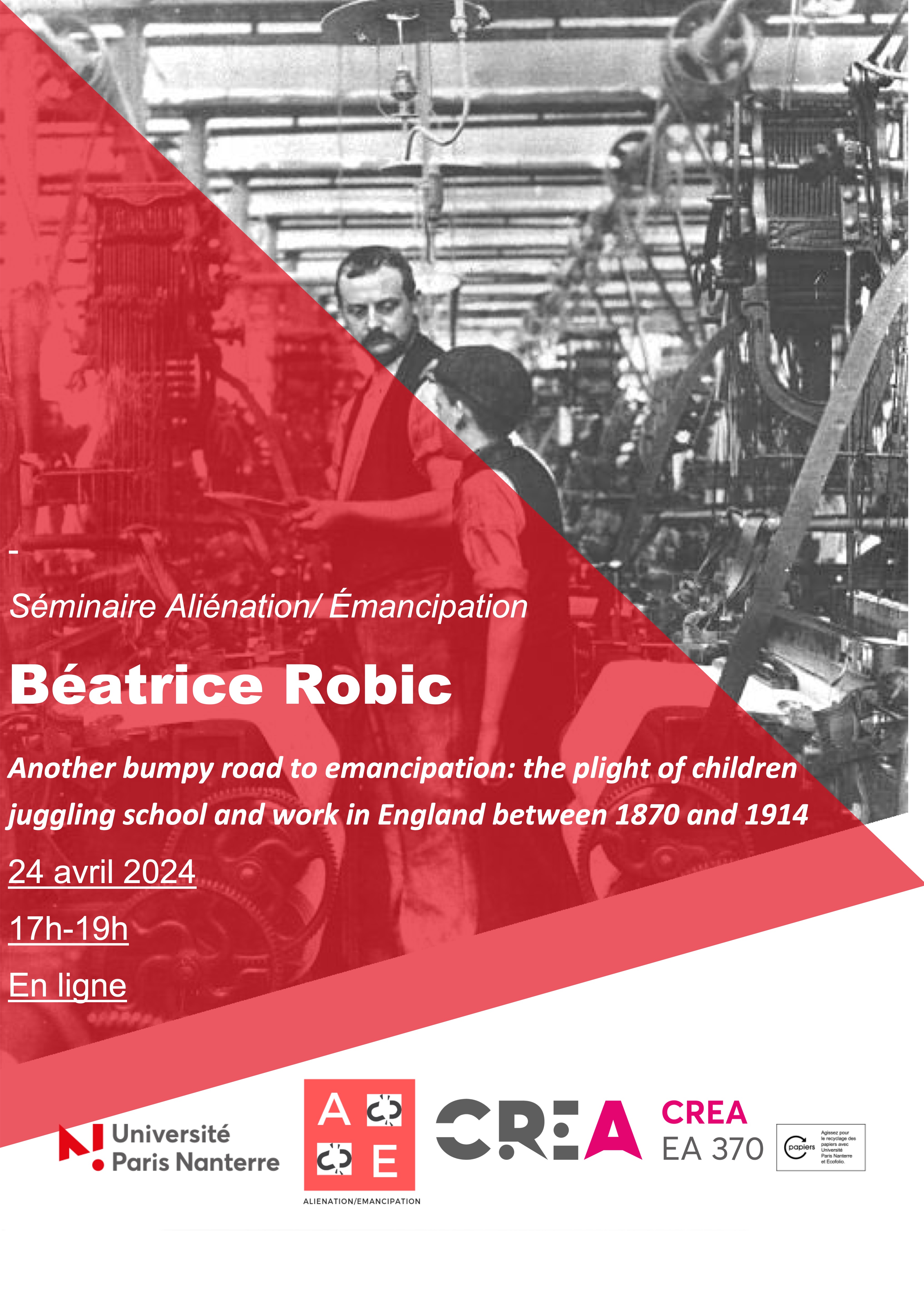Version française / Séminaires
Séminaire Aliénation/Émancipation : Beatrice Robic

Another bumpy road to emancipation: the plight of children juggling school and work in England between 1870 and 1914. Discutant : Yann Béliard
le 24 avril 2024
Abstract
In late nineteenth century and early twentieth century England and Wales, the slow but irresistible spread of universal elementary education up to the age of fourteen posed a serious challenge to many employers and working-class households. This indeed was a moment when the demand for and supply of child workers were strong in all the sectors of the economy. In fact, so imperious was the call of labour in some trades and places that, in order to cushion the blow, special dispensations were granted by the State from the outset, allowing parents to withdraw their children from school for good long before they had completed their education journey. Most early school-leavers then would enter the labour market as full-time workers. Moreover, throughout the period under study, it remained legal to employ schoolchildren, either out of school hours, regardless of their age, or during half of a school’s yearly sessions, under what was known as the “half-time system”, provided certain conditions were met.
In this paper, I will focus on part-time child labour. I will examine its main characteristics, explore changes in its regulation and extent, and look into its effects on children’s health and education. I will argue that, contrary to what has sometimes been suggested in the historiography, to combine work and schooling was not in the children’s best interests. My findings indicate that it often entailed a lot of suffering, and could undermine working-class children’s chances to escape the child labour trap. Finally, as both the half-time system and out-of-school work were well-entrenched practices in some quarters by 1870, I will discuss whether the condition of schoolchildren engaged in part-time work tended to improve or deteriorate after that date.
Biographies
Béatrice Robic est actuellement maître de conférences en civilisation britannique à l’Université Paris Nanterre.
Sa recherche porte sur le travail des enfants en Grande-Bretagne au cours du long dix-neuvième siècle. Elle s’intéresse particulièrement aux interactions entre l’histoire du travail des enfants et celle de l’éducation, de l’économie et du genre.
Fin 2022, elle a soutenu une thèse en histoire contemporaine à Sorbonne Université qui cherche à comprendre le lent recul du travail des enfants outre-Manche. Sa thèse a été écrite en anglais et elle s’intitule : ‘Where Are the Children?’ The Long Decline of Child Labour in England and Wales (1870-1914).
Yann Béliard est maître de conférences en civilisation britannique à l'Université Sorbonne Nouvelle. Ses recherches portent sur l'histoire du monde ouvrier britannique.
Mis à jour le 04 avril 2024
Pour vous inscrire













